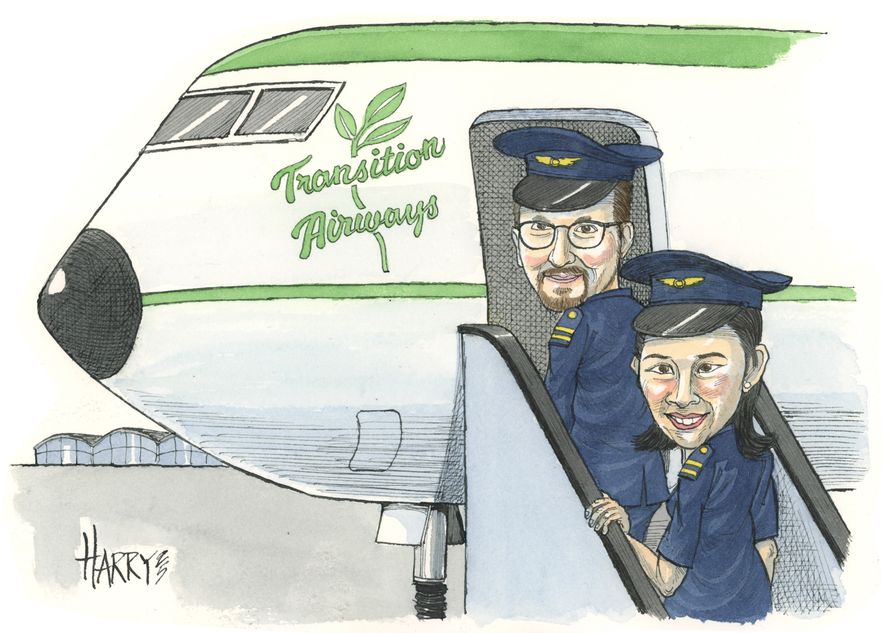Asia-Pacific ESG Financing House: Credit Agricole CIB
The sky’s the limit
Credit Agricole used sustainability-linked financings for Chinese leasing companies to help cut the transport sector's carbon emissions and brought deals with distinctive ESG angles in a year when issuers and investors put less focus on neat ESG labels than on tangible achievements. The bank broke new ground by helping companies in hard-to-abate sectors, as well as crafting financings to fund specific social aims. Credit Agricole CIB is IFR's Asia-Pacific ESG Financing House of the Year.

“There has been growing interest in transition finance and we are trying to support our clients on this journey,” said Antoine Rose, head of sustainable investment banking for Asia-Pacific and the Middle East at Credit Agricole CIB. “We made a significant push into the aviation financing sector.”
After acting as sole sustainability agent and joint lead sustainability structuring adviser for CDB Aviation’s sustainability-linked loan in December 2023, the world’s first syndicated SLL for an aircraft lessor, Credit Agricole built on that momentum in 2024. It advised CDB Aviation on a US$506m SLL in March and a US$700m sustainability-linked seven-year financing in August secured against a portfolio of Airbus and Boeing aircraft. The latter transaction was the industry’s first SLL-based aircraft portfolio financing executed by an aircraft lessor globally and earned a best-in-class SQS2 rating from Moody’s.
For the two subsequent financings Credit Agricole helped adapt targets from the borrower’s inaugural SLL, which involve cutting carbon emissions intensity of its fleet, increasing its proportion of new generation aircraft, and increasing ESG and diversity training for its workforce.
“The CDB Aviation sustainability-linked financings have given us a great case study to replicate for other aviation leasing companies and financial leasing companies,” said Carmen Tsang, head of sustainable investment banking for Greater China.
Credit Agricole continued its strong work in the leasing field by helping BoCom Financial Leasing to bring the first green bond from a Chinese financial lessor to be aligned with the Common Ground Taxonomy, which commits the issuer to follow the stricter of the European and Chinese ESG standards where they differ. BoCom Leasing’s framework was the first from the financial leasing sector to include dedicated categories on aviation and shipping assets, supporting their transition to more sustainable fuels.
The French bank led a host of first-time deals. Macquarie Bank’s debut green issue, a €600m five-year bond, refinanced its new headquarters building, which has the highest possible ESG rating in Australia. The green format helped attract new investors and achieve better pricing than its conventional bonds.
Credit Agricole arranged the inaugural green loan for Taiwan’s E Ink, a producer of electronic ink and paper products, basing it on the EU Taxonomy.
The bank also helped issuers add distinctive angles to their ESG deals. It was joint ESG structuring adviser when Industrial Bank Hong Kong branch brought its first offshore social bond earmarked to finance tech SMEs, and green structuring adviser for Industrial and Commercial Bank of China’s US$1.7bn-equivalent three-currency green bonds with a carbon neutrality theme.
Credit Agricole arranged Asian Development Bank’s first biodiversity and nature bond, a A$150m (US$93m) 10-year issue sold in October to Dai-ichi Life Insurance.
Several financings had cross-border angles. The bank coordinated a US$400m green loan for India's REC, supported by 80% cover from Italian export credit agency Sace, the first ECA-backed green financing by an Indian public sector financial institution.
Credit Agricole was sustainability structuring bank when Taiwan Cement raised an €800m sustainability-linked loan to increase its holdings in cement ventures in Turkey and Portugal, and advised Australian data centre operator AirTrunk on a S$530m (US$402m) sustainability-linked loan that closed in October to fund a project in Malaysia.
It was involved in the region’s biggest ESG bond deals, from the Hong Kong government’s digital green bonds and metro operator MTR’s green Dim Sum to Hong Kong Mortgage Corp’s US$3.1bn-equivalent multicurrency social bonds, as well as leading most of the ESG bond deals from South Korean financial institutions.
“My team is growing because the business is growing,” said Rose. “We are active in pitching with the business lines such as debt capital markets team.”
Importantly, Credit Agricole avoided being exposed to corporate governance blowups at borrowers that hit many other banks in the region – showing the importance of the G in ESG.
To see the digital version of this report, please click here.
To purchase printed copies or a PDF of this report, please email leonie.welss@lseg.com






